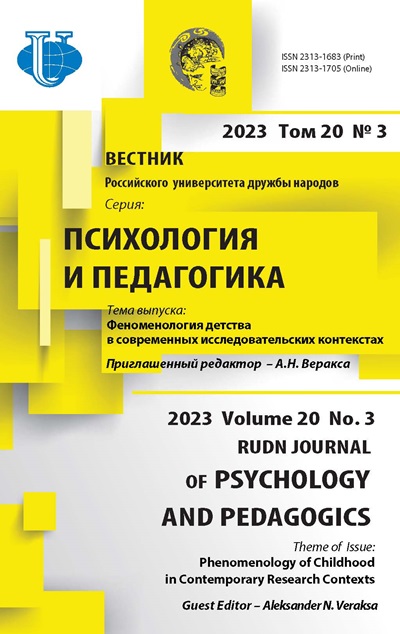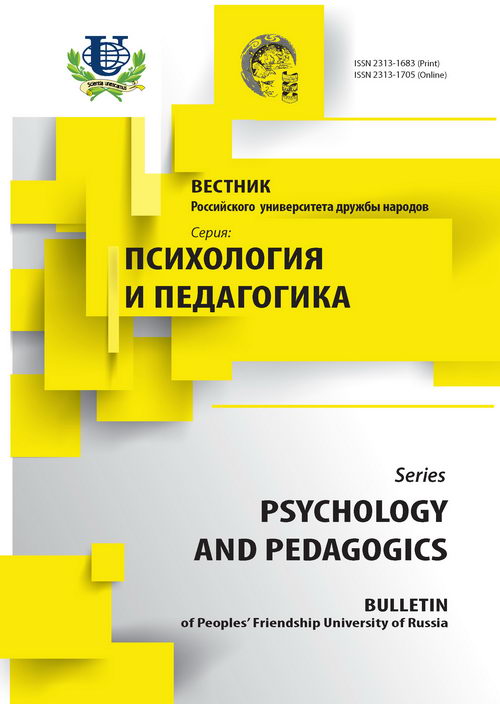PROACTIVE COPING AS A PERSONAL POTENTIAL RESOURCE IN THE PROCESS OF ADAPTATION TO NEW LIFE CONDITIONS
- Authors: Pilishvili TS1, Ismaeel A.M.1
-
Affiliations:
- Peoples’ Friendship University of Russia
- Issue: No 2 (2016)
- Pages: 75-83
- Section: Articles
- URL: https://journals.rudn.ru/psychology-pedagogics/article/view/13426
Cite item
Full Text
Abstract
The article is devoted to the specificity of proactive coping as the generation of individual mental resources in personality in the situation of forced adaptation to the new living conditions in the refugee camp. It demonstrates the possibility to generate authentic personal activity by means of coping, focused on the future. The relationship of different coping types with the difficult life situation and the nature of adaptation to new life conditions by the example of the Syrian adolescents is analyzed. Proactive coping is being seen as the efforts to create a shared resource to facilitate the achievement of future goals as well as general vision. It is shown that proactive coping is associated with effective adaptation, suggesting a lack of communication difficulties, high self-confidence and orientation towards the future. Gender differences in adapting to the new conditions are demonstrated, taking into account the factor structure of the Syrian boys and girls samples as the members of specific ethnic - cultural group. An association is found out between the proactive coping and estrangement in girls, in particular, which means the possibility of abstracting from the problem situation emotional experiences, that is less characteristic of the boys of the study sample. Possible future ways of activity development as the formation of subjectivity in the objectives management, contrary to the traditional risk management in difficult situations within the reactive coping are denoted.
About the authors
T S Pilishvili
Peoples’ Friendship University of RussiaDepartment of Psychology and Pedagogy
Al Masri Ismaeel
Peoples’ Friendship University of RussiaDepartment of Psychology and Pedagogy
References
















